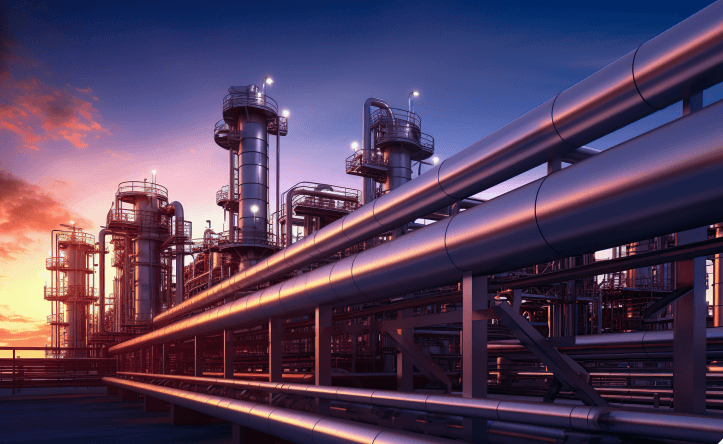Why External Insulation is Crucial for Industrial Efficiency
Optimizing Energy Consumption with High-Performance Insulation
Energy loss is one of the biggest challenges industrial facilities face. Equipment and pipelines that are not insulated properly can lead to unnecessary heat dissipation, forcing systems to consume more energy to maintain required temperatures. External insulation helps industries optimize energy usage by maintaining a stable internal environment, reducing dependency on continuous heating or cooling systems.
Modern insulation materials are engineered with advanced thermal resistance properties, ensuring minimal energy loss even in extreme environments. High-performance materials such as ceramic fiber, aerogels, and microporous insulation have revolutionized industrial insulation by offering superior thermal efficiency at a reduced thickness. By incorporating these cutting-edge solutions, industries can achieve maximum energy conservation while maintaining peak operational efficiency.
Enhancing Equipment Durability and Reducing Maintenance Costs
Industrial machinery and pipelines operate under extreme temperature fluctuations, which can lead to wear and tear over time. Frequent exposure to high heat, moisture, and environmental contaminants accelerates corrosion, causing unexpected failures and costly downtime. External insulation acts as a protective layer that shields equipment from these harmful effects, thereby extending its operational lifespan.
Insulated equipment is less likely to suffer from mechanical stress, which means reduced maintenance requirements and fewer replacements. In industries such as petrochemicals, steel production, and power generation, where downtime can cost millions, having a reliable insulation system can make a significant difference. Additionally, modern insulation materials offer built-in moisture resistance, preventing condensation-related damages that can weaken structural integrity over time.
Meeting Sustainability Goals with Eco-Friendly Insulation Solutions
With industries facing increasing pressure to minimize their environmental impact, sustainable insulation solutions are gaining traction. Traditional insulation materials often contain harmful substances that contribute to pollution and energy wastage. However, new-age insulation products are designed with sustainability in mind, utilizing biodegradable, non-toxic, and recyclable materials.
Companies are now adopting insulation solutions made from aerogel composites, recycled fibers, and environmentally friendly foams. These materials not only offer superior insulation performance but also help industries reduce their carbon footprint. By investing in sustainable insulation, businesses can align with global energy regulations, reduce greenhouse gas emissions, and move towards a greener future without compromising efficiency.
Future Innovations in Industrial Insulation Technology
As technology advances, the insulation industry is witnessing groundbreaking innovations aimed at further enhancing energy efficiency and equipment protection. Smart insulation systems, equipped with IoT sensors, are being developed to provide real-time data on temperature variations, heat losses, and overall insulation performance. This allows industries to take proactive measures in maintaining their insulation systems, preventing potential inefficiencies before they escalate into costly problems.
Another promising development is the integration of self-healing insulation materials that can automatically repair minor damages, ensuring continuous protection and efficiency. Additionally, research is being conducted on nanotechnology-enhanced insulation, which offers even greater thermal resistance while being lightweight and cost-effective. These future advancements will redefine industrial insulation, making it smarter, more durable, and even more energy-efficient.
By embracing the latest insulation technologies, industries can achieve unparalleled efficiency, cost savings, and environmental sustainability. External insulation is not just a protective measure—it is a strategic investment in long-term industrial success.


